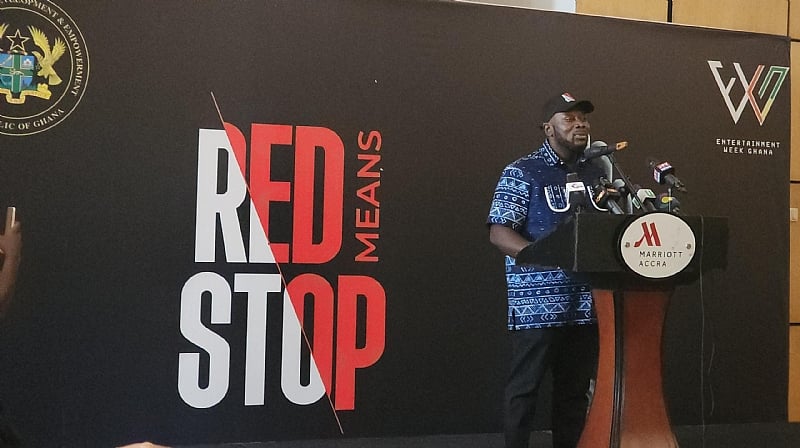The “Red Means Stop” initiative, spearheaded by Ghana’s Minister of Youth Development and Empowerment, Hon. George Opare Addo Esq., represents a comprehensive national response to the escalating crisis of drug abuse, particularly tramadol-based substances, among the nation’s youth. This multi-faceted campaign aims to dismantle the pervasive grip of opioid addiction by focusing on education, empowerment, and engagement, ultimately fostering a generation of informed, resilient young people capable of resisting the allure of harmful substances. This initiative recognizes that drug abuse not only jeopardizes individual lives but also poses a significant threat to the future of Ghana, impacting its social fabric, economic progress, and overall national development. The “Red Means Stop” campaign, therefore, functions as a clarion call, urging collective action to protect the potential of Ghanaian youth and safeguard the nation’s destiny.
The urgency of the “Red Means Stop” campaign is underscored by alarming statistical data revealing the growing prevalence of drug abuse among Ghanaian youth. With nearly 13% of young people engaging in alcohol consumption and 17% using marijuana, the figures paint a concerning picture. Furthermore, the reported use of hard drugs like heroin and amphetamines, hovering around 8%, highlights the severity of the situation. These statistics illuminate a disturbing trend and underscore the critical need for proactive intervention to stem the tide of substance abuse before it further erodes the future of Ghana’s youth. The “Red Means Stop” campaign recognizes that these are not just numbers but represent real lives at risk, futures compromised, and dreams unfulfilled.
The “Red Means Stop” campaign’s strategic framework rests on three fundamental pillars: education, empowerment, and engagement. The educational component aims to disseminate accurate, evidence-based information about the detrimental effects of drug abuse, shattering myths and misconceptions surrounding substance use. By equipping young people with the knowledge they need to make informed decisions, the campaign empowers them to resist peer pressure and the allure of drugs. Simultaneously, the empowerment pillar focuses on providing youth with the necessary tools and support systems to navigate the challenges they face, fostering resilience and self-efficacy. Finally, the engagement pillar prioritizes collaboration with various stakeholders, including community organizations, schools, and digital platforms, to expand the campaign’s reach and impact.
The engagement pillar of the “Red Means Stop” campaign emphasizes a collaborative, community-driven approach to address the multifaceted challenge of drug abuse. By partnering with diverse stakeholders, including educational institutions, community leaders, parents, and youth organizations, the campaign aims to create a supportive ecosystem that encourages healthy choices. School tours and outreach programs bring the campaign’s message directly to students, while digital campaigns leverage the power of social media and online platforms to reach a wider audience. This multi-pronged engagement strategy seeks to create a groundswell of support for drug-free living, fostering a culture of prevention and resilience within communities across Ghana.
The “Red Means Stop” campaign’s core message resonates with the urgent need to protect the potential of Ghanaian youth. It recognizes that the future of the nation rests on the shoulders of its young people, and their dreams and aspirations must be shielded from the destructive consequences of drug abuse. The campaign underscores the importance of investing in the well-being of youth, providing them with the resources and support they need to thrive. By framing drug abuse as a thief that steals dreams and squanders potential, the campaign aims to resonate with young people on a personal level, motivating them to choose a path of health and fulfillment.
Through its comprehensive and multi-faceted approach, the “Red Means Stop” campaign embodies a powerful message of hope and resilience. It represents a collective commitment by the government, communities, and individuals to create a drug-free future for Ghanaian youth. By emphasizing education, empowerment, and engagement, the campaign aims to equip young people with the skills and knowledge they need to resist the allure of drugs and make informed choices about their health and well-being. The “Red Means Stop” initiative is more than just a campaign; it is a movement that seeks to transform the landscape of drug abuse in Ghana, paving the way for a brighter future for generations to come.


